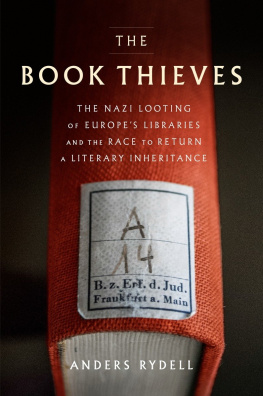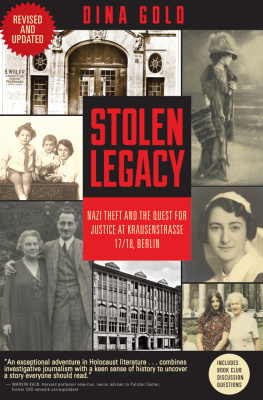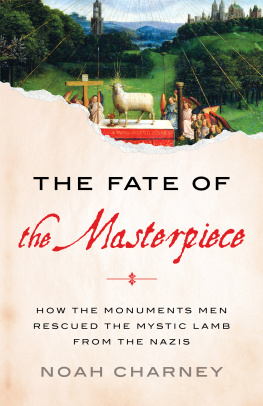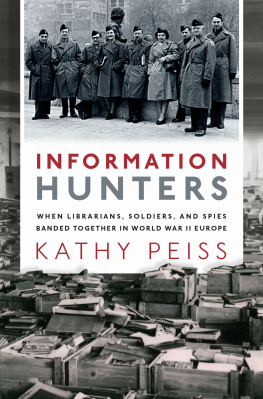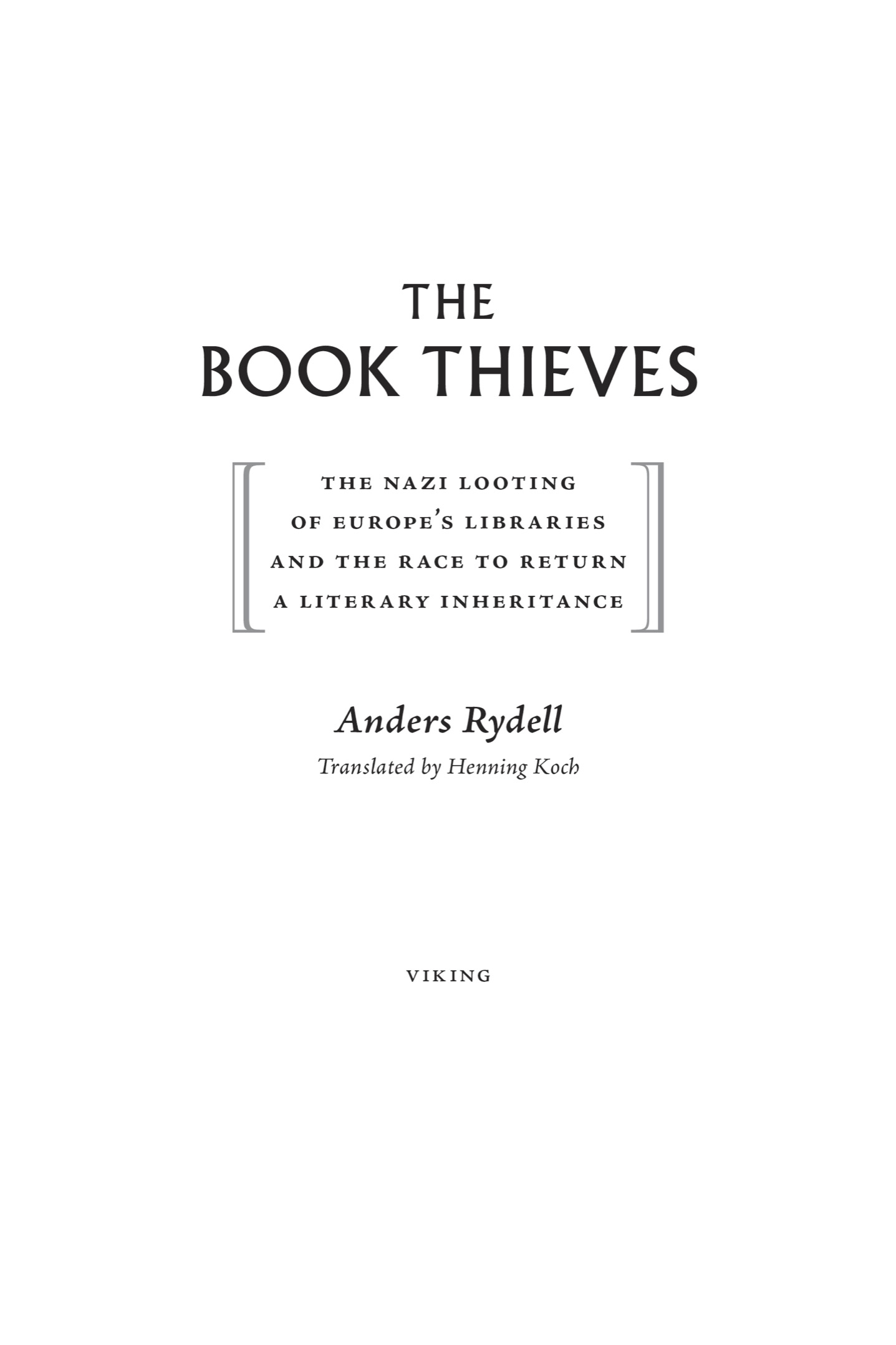Anders Rydell - The Book Thieves: The Nazi Looting of Europe’s Libraries and the Race to Return a Literary Inheritance
Here you can read online Anders Rydell - The Book Thieves: The Nazi Looting of Europe’s Libraries and the Race to Return a Literary Inheritance full text of the book (entire story) in english for free. Download pdf and epub, get meaning, cover and reviews about this ebook. year: 2017, publisher: Viking, genre: Religion. Description of the work, (preface) as well as reviews are available. Best literature library LitArk.com created for fans of good reading and offers a wide selection of genres:
Romance novel
Science fiction
Adventure
Detective
Science
History
Home and family
Prose
Art
Politics
Computer
Non-fiction
Religion
Business
Children
Humor
Choose a favorite category and find really read worthwhile books. Enjoy immersion in the world of imagination, feel the emotions of the characters or learn something new for yourself, make an fascinating discovery.
- Book:The Book Thieves: The Nazi Looting of Europe’s Libraries and the Race to Return a Literary Inheritance
- Author:
- Publisher:Viking
- Genre:
- Year:2017
- Rating:5 / 5
- Favourites:Add to favourites
- Your mark:
The Book Thieves: The Nazi Looting of Europe’s Libraries and the Race to Return a Literary Inheritance: summary, description and annotation
We offer to read an annotation, description, summary or preface (depends on what the author of the book "The Book Thieves: The Nazi Looting of Europe’s Libraries and the Race to Return a Literary Inheritance" wrote himself). If you haven't found the necessary information about the book — write in the comments, we will try to find it.
While the Nazi party was being condemned by much of the world for burning books, they were already hard at work perpetrating an even greater literary crime. Through extensive new research that included records saved by the Monuments Men themselvesAnders Rydell tells the untold story of Nazi book theft, as he himself joins the effort to return the stolen books. When the Nazi soldiers ransacked Europes libraries and bookshops, large and small, the books they stole were not burned. Instead, the Nazis began to compile a library of their own that they could use to wage an intellectual war on literature and history. In this secret war, the libraries of Jews, Communists, Liberal politicians, LGBT activists, Catholics, Freemasons, and many other opposition groups were appropriated for Nazi research, and used as an intellectual weapon against their owners. But when the war was over, most of the books were never returned. Instead many found their way into the public library system, where they remain to this day.
Now, Rydell finds himself entrusted with one of these stolen volumes, setting out to return it to its rightful owner. It was passed to him by the small team of heroic librarians who have begun the monumental task of combing through Berlins public libraries to identify the looted books and reunite them with the families of their original owners. For those who lost relatives in the Holocaust, these books are often the only remaining possession of their relatives they have ever held. And as Rydell travels to return the volume he was given, he shows just how much a single book can mean to those who own it.
Anders Rydell: author's other books
Who wrote The Book Thieves: The Nazi Looting of Europe’s Libraries and the Race to Return a Literary Inheritance? Find out the surname, the name of the author of the book and a list of all author's works by series.

